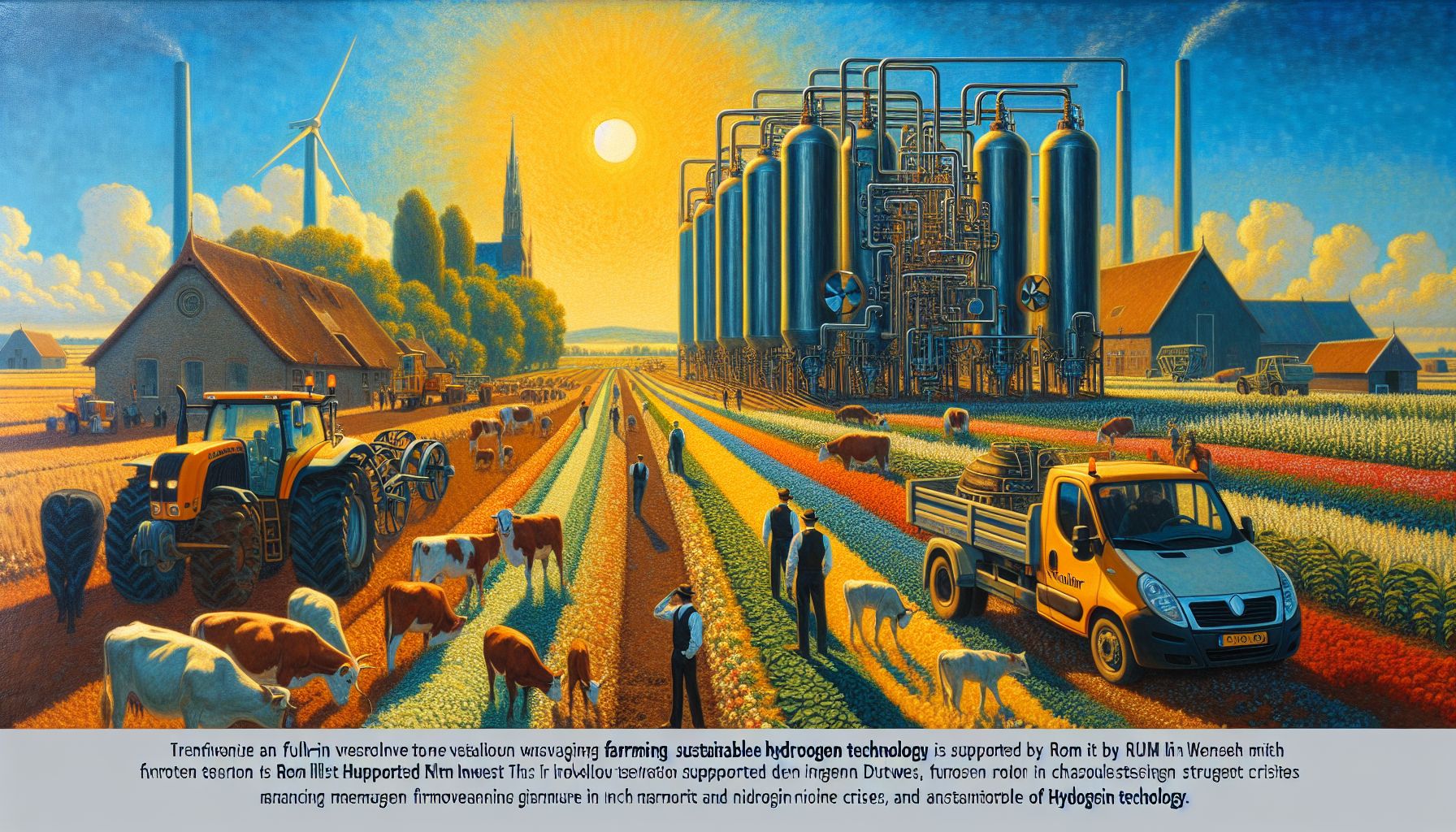Hydrogen Technology Revolutionizes Sustainable Farming with Flexiliser

Amsterdam, Saturday, 12 April 2025.
Flexiliser’s hydrogen-based solutions, supported by ROM InWest, are helping Dutch farmers manage manure and nitrogen crises and advancing sustainable agricultural practices.
Innovative Dutch Startup Origins
Founded in 2022, Flexiliser emerged from the vision of three entrepreneurs: Steven van Dalen, Manuel Dieguez Sanchez, and Michel Don Michaloliákos. Van Dalen and Sanchez, both holding sustainability masters degrees from Utrecht, previously operated SanDalen Sustainability Solutions before launching this innovative venture [1]. The company’s creation was sparked by a comprehensive feasibility study that identified significant opportunities within the agricultural sector, particularly addressing the pressing issue of high manure disposal costs for farmers [1].
Revolutionary Approach to Agricultural Waste
Flexiliser’s innovative concept enables dairy farmers to treat and spread their own manure on their land while creating opportunities to sell any surplus, fundamentally transforming their business model and reducing dependence on synthetic fertilizers [1]. The company is currently collaborating with TNO and Adverio Waste Systems to design and construct a manure acidification installation, working directly with dairy farmers to implement this solution [1]. This development aligns with the growing global focus on sustainable farming practices and the integration of renewable energy solutions in agricultural value chains [4].
Strategic Support and Future Vision
In early 2024, Flexiliser secured crucial support from ROM InWest, enhancing their network and access to progressive farmers [1]. The company’s participation in the Business Innovation Program Food (BIPF) has helped refine their understanding of dairy farmers’ needs and market positioning [1]. Looking ahead, Flexiliser aims to implement their manure management solution within the next 1-2 years, with an ambitious long-term vision of integrating energy and agriculture through on-farm production of green hydrogen, ammonia, and nitric acid [1]. This innovative approach coincides with the broader industry movement toward hydrogen-based solutions for agricultural sustainability [5].

